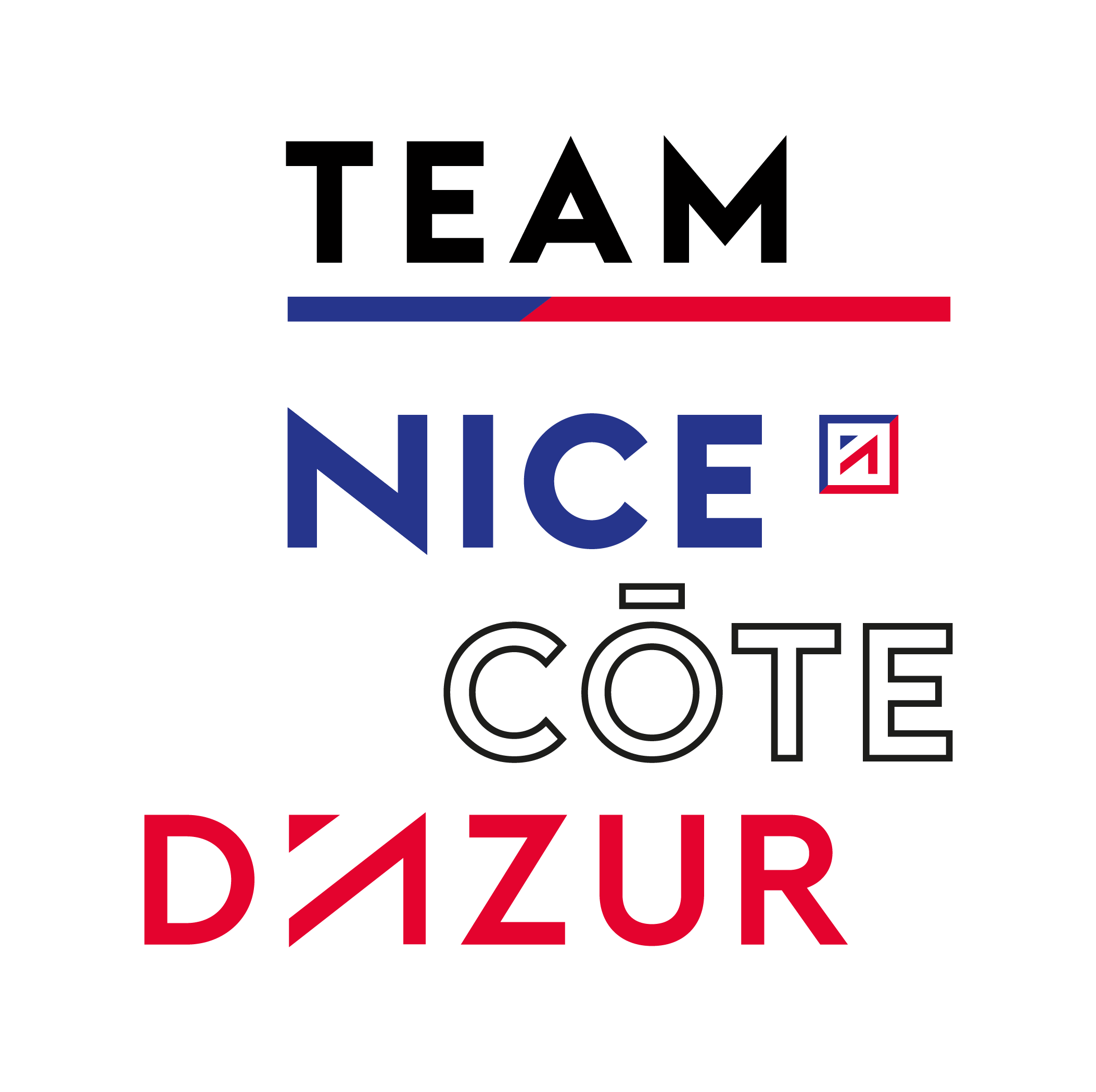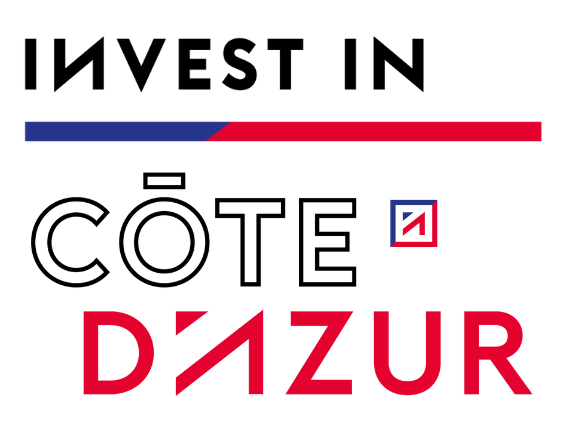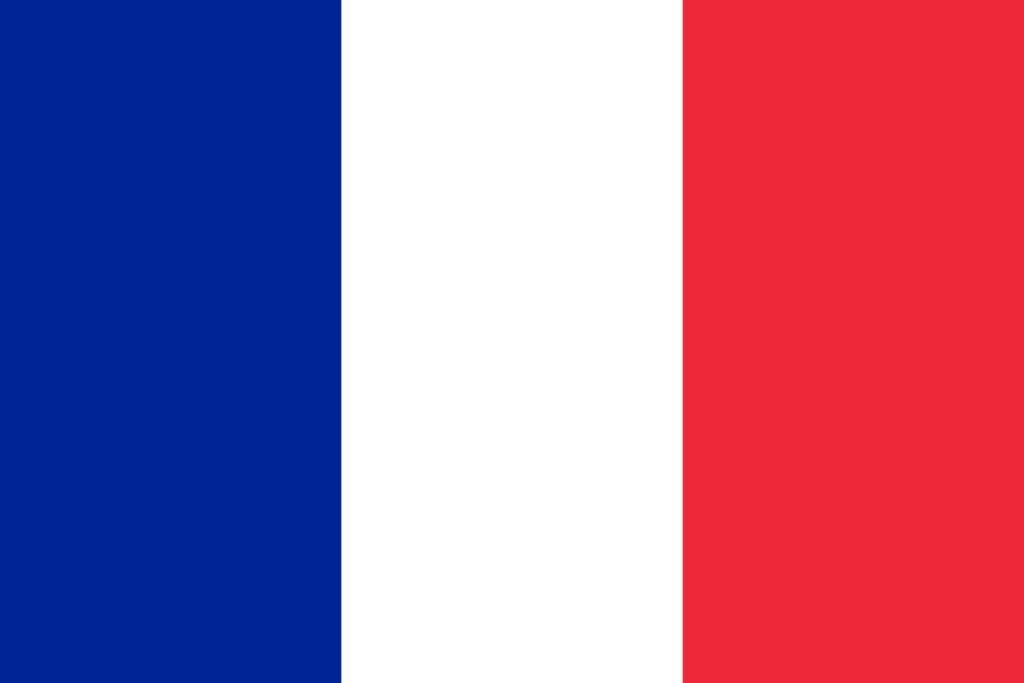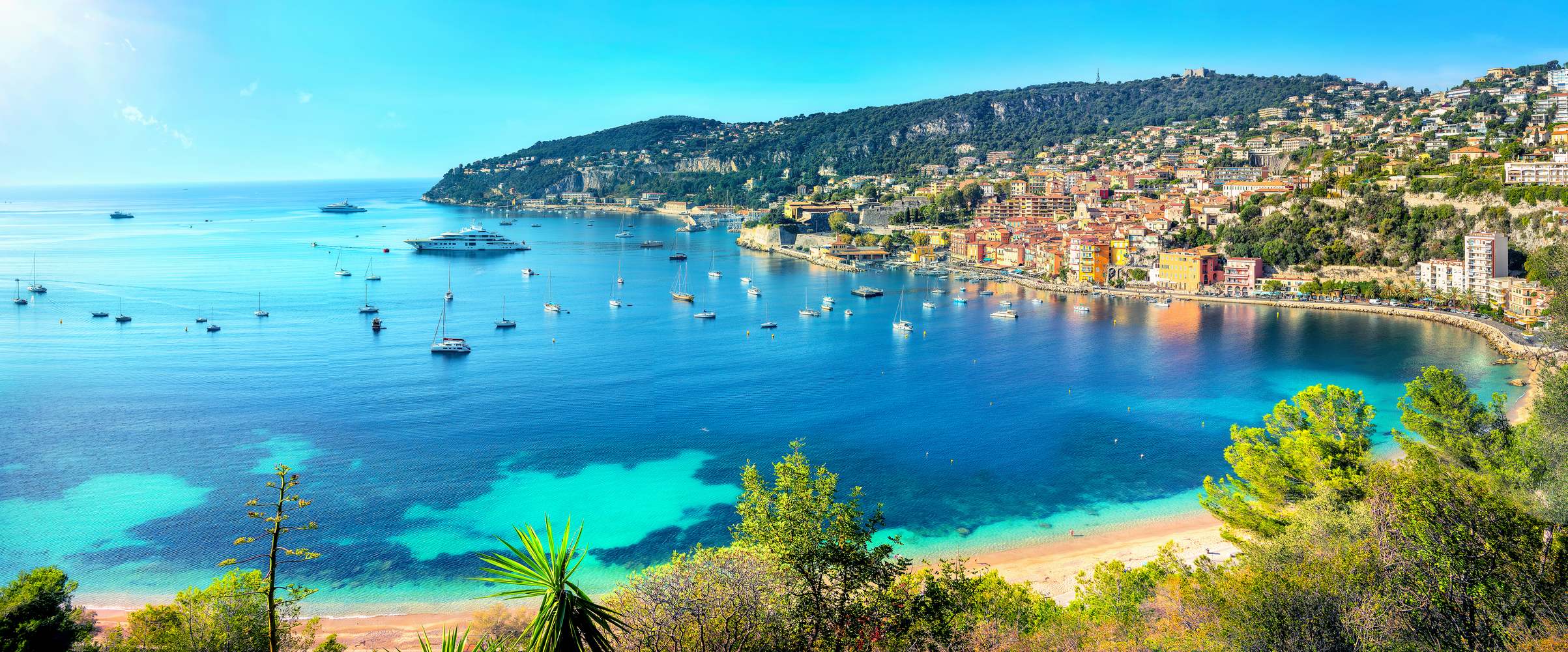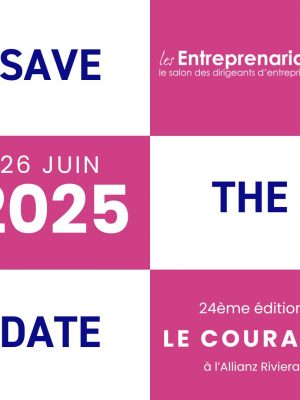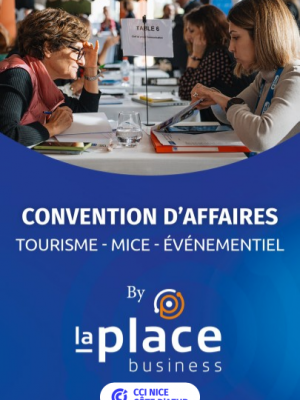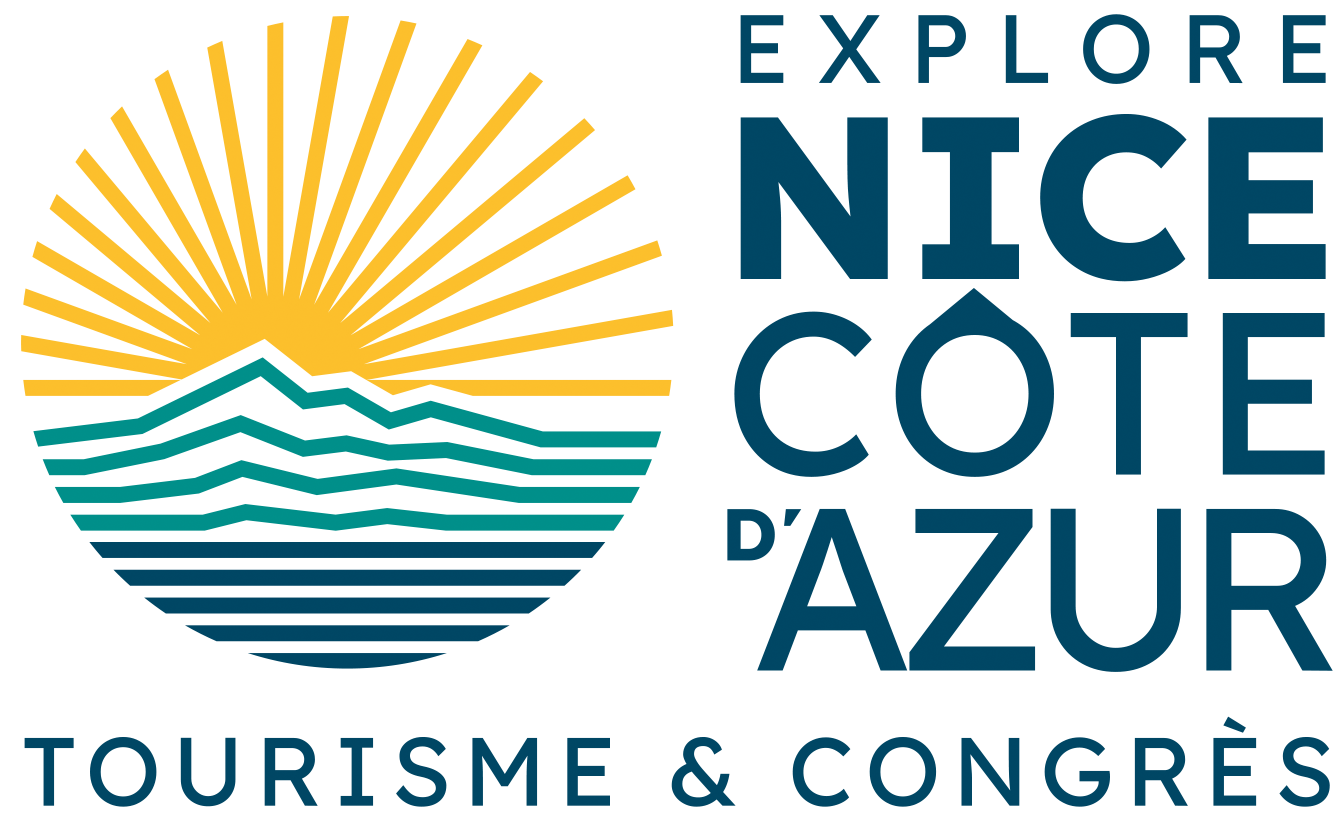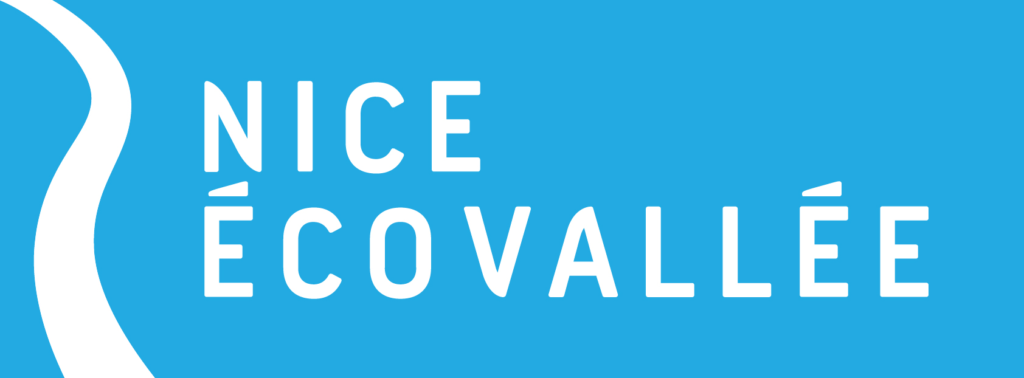Doing research on the Côte d'Azur
Research in France

France is one of the world’s most research-intensive nations with:
- €50 billion in R&D investment
- More than 285,000 researchers, 60% of them in industry
- More than 74,000 PhD
- Universities at the heart of Research: 265 PhD schools in French and in English
- 5th in OECD for R&D spending
- Share of GDP devoted to research: 2.27%
- 42 % of foreign PhD’s candidates
- Institutions with an international reputation (CNRS…)
Source: Campus France, June 2019
Useful links
- Website of UCA (Université de Nice Côte d’Azur) :http://univ-cotedazur.fr
- Website of Campus France :Étudiant | Campus France Studying in France
Research structures on the côte d’azur

The Côte d’Azur Research & Development sector counts more than 5000 researchers. With Université Côte d’Azur, a group of higher education institutions bringing together the main actors of higher education and research on the Côte d’Azur, holding the label and the financing of the prestigious “Initiatives of Excellence”, the Côte d’Azur has a research strength multiplied.
Some key figures :
- 4218 people working in A or A+ Research Labs
- 493 Research and Training partnerships
- 53 projects financed by the National Research Agency
- €35 million for Research contracts
- 76 national awards and 48 international awards
Renowned Research centers on the Côte d’Azur include :
- IRCAN (Research Center for Cancer and Aging)
- C3M (Mediteranean Centre for Molecular Medicine)
- INRIA Sophia Antipolis, which also deals with medical imaging and diagnosis tools by combining Health and AI
- ICN (Center for Chemistry of Nice) associated to the CNRS.
- University of Nice Sophia Antipolis (UCA)
- CNRS
- Eurecom
- Mines Paris Tech
In partnership with the INRA, INSERM, IRD, CEA, Nice University Hospital Center, the Antoine Lacassagne Center (CAL), it organizes its research activities around 54 research units in all major scientific fields:
- 11 Joint UNS/CNRS Research Units.
- 1 Joint UNS/INSERM Research Unit.
- 1 Joint UNS/ECA Research Unit.
- 9 Joint Research Units under multiple supervision.
- 1 Research Unit specific to the CNRS.
- 2 Joint Service and Research Units.
- 1 Joint Service Unit specific to the OCA.
- 1 Center for Human and Social Sciences (MSHS).
- 16 Host Research Groups (EA).
- 4 Emerging Research Units (URE).
- 1 Collaborative Research and Innovation Team (ECRIN, UCA/SKEMA).
- 1 Research Federation UNS/CNRS/OCA/Mines Paris Tech (Doeblin).
- 1 Research Federation on Health Care.
- 3 Université Côte d’Azur Research Federations.
- 2 Joint International Units: IFCAM in Bengalore (India) and MAJULAB in Singapore.
- Several International Associate Laboratories (LIAs) and International Research Networks (IRN or GDRI).
Main research structures linked to Université Côte dAzur include:
- Laboratories
- Academies of Excellence, which elaborate and develop a transdisciplinary approach involving the entire scientific community to work on emerging research and education projects.
- Doctoral Schools which – like the Graduate School – offer the future doctor a high-level scientific supervision as well as preparation for professional integration
Find out more about the research structures on the Côte d’Azur:
Useful links
- UCA :http://univ-cotedazur.fr/fr/recherche/unites-de-recherche#.XWThpegzaUlhttp://unice.fr
- IRCAN :http://ircan.org/
- C3M :http://www.unice.fr/c3m/
- INRIA :Centre Inria Sophia Antipolis – Méditerranée | Inria
- ICN :http://univ-cotedazur.fr/labs/icn/fr
- CNRS :http://c-a.cnrs.fr/
- Eurecom :http://www.eurecom.fr/fr
- Mines Paris Tech :https://www.sophia.mines-paristech.fr/
Doctoral research

A PhD is a postgraduate degree, reserved for students who hold at least a Master’s degree and awarded to students who complete an original thesis offering a significant new contribution to knowledge in their subject. A PhD allows training in a specific research field and finding a job in the public or private research sector or any other branch after completing a thesis.
It is mandatory to complete a thesis in order to validate the doctoral studies. Completing a thesis requires much personal investment, which is why candidates must choose a subject they enjoy. It is imperative that the research makes an original contribution to the chosen field, based on independent research.
Your application for PhD studies is based on four essential points. You must:
- Have a French master’s degree or its equivalent. If you do not have a French master’s, you must submit a waiver request to the Doctoral School you wish to join.
- Have secured the agreement of a thesis advisor authorized to supervise research (i.e. habilitated with HDR title) and found a host laboratory/institute.
- Have defined a doctoral research project (thesis topic). Note that most institutes and Doctoral Schools post a (non-exhaustive) list on their website of thesis topics offered.
- Have obtained funding for the duration of doctoral studies, depending on the Doctoral School.
The support structures for PhD students at Université Côte d’Azur are :
- The Center for Doctoral Studies, whose aim is to simplify the PhD students’ efforts at each stage of their research and to facilitate their integration
- Doctoral Schools, which bring together research teams that support the training and future opportunities for Ph.D. students.
- Labex, “laboratories of excellence” with the potential to support research in promising scientific fields.
- The Welcome Centre, which welcomes and accompanies invited researchers and faculty in their administrative procedures.
- The University Documentation Service, which assists and informs doctoral students regarding all questions related to the publication of their research results.
Useful links :
- UCA :http://univ-cotedazur.fr/en/recherche/recherche-doctorale#.XUkpRegzaUk
- Recherche doctorale :http://univ-cotedazur.fr/fr/recherche/recherche-doctorale
- Welcome Centre :http://univ-cotedazur.fr/fr/international/welcome-center
- Service Commun de la Documentation :https://bu.univ-cotedazur.fr/fr/utiliser-nos-services/deposer-sa-these-ou-son-memoire
Calls for projects

Calls for projects are a way to obtain subsidies. Below are the main categories of calls for projects:
European:
- Horizon 2020 : program for research and development from 2014-2020
- FEDER (« Fonds Européen de Développement Régional ») – European Regional Development Fund which aims to strengthen economic and social cohesion in the European Union by correcting imbalances between its regions.
- European Territorial Cooperation (« Coopération territoriale »): Cohesion policy instrument that aims at solving issues across borders and jointly developing the potential of diverse territories.
National :
- « Agence Nationale de la Recherche – ANR » : The French National Research Agency is a public administrative institution under the authority of the French Ministry of Higher Education, Research and Innovation. The agency funds project-based research carried out by public operators cooperating with each other or with private companies.
- Single Inter-Ministry Fund (« Fonds Unique Interministériel » – FUI) : Program aiming at supporting research for developing products and services that can be commercialized on the short and mid term
Région Sud :
- « Appels à Projets de Recherche Finalisée – APRF » : Encouraging medium-size innovative and collaborative research projects, which bring together regional companies and experts
- PACA Labs : regional program to support digital innovation and experiments
- Calls for Projects in the Research sector (« Appels à projets Recherche »)
Alpes Maritimes Departmental Council :
- Calls for Projects in the Health sector (« Appel à projets Santé ») : Tackling major current and future challenges linked to health
City of Nice :
- Young Researchers’ Individidualized Assistance (« Aide individuelle jeunes chercheurs » ) :
Support scheme for young researchers specializing in the Life Sciences and Health industries - Calls for projects « Doyen Jean Lepine » : Once a year, this committee gathers renowned specialists to review submissions by the research labs of the University of Nice Sophia-Antipolis after a call for project
Below are the calls for projects launched by Université Côte d’Azur and its partners :
Research Calls for Projects :
- Calls for applications – postdoctoral positions in the field of AI and Massive Data Processing
- Call for applications for the UCAJEDI Advanced Research Program 2019 Campaign
- Call for application Marie de Nice 2019 (individual grant for young researchers)
Call for Projects Research Université Nice Sophia Antipolis
- Call for projects UNS 2019 “Scientific Credits Incentives” – CSI 2020
- Scientific Incentive Credits – CSI: to help fund research operations at Research Laboratories, Federative Research Institutes and Joint Centers
- Post-Doctoral sponsorship
Closed Calls for Projects :
- Call for projects Université Côte d’Azur for the award of contract
- Call for projects for the award of 15 thesis grants on the e-health theme
- Call for applications of the UCAJEDI Advanced Research Program Campaign 2019
- Call for applications “Young Researchers Individual Aids” 2018
- Joint call for applications Nice Town Hall & Cote d’Azur University “Young Researchers Individual Aids” 2018
- Calls for Doctoral Research Projects
Project leaders may be accompanied by the Research Unit Europe of the DRVI (Direction de la Recherche, de la Valorisation et de l’Innovation) for research and assistance in project development, taking into account :
- The identification of the call for projects,
- Definition and budgeting of project needs (human resources, operation, equipment …),
- Comprehension of administrative data.
For further information :
DRVI : http://univ-cotedazur.fr/fr/university/direction-et-services/drvi
Useful links & contacts :
- Contact of UCA:projet.recherche@unice.fr
- UCA Website :http://unice.fr/recherche/appel-a-projets/page.htmlhttp://univ-cotedazur.fr/fr/recherche/appels-a-projets#.XWTnv-gzaUk
- Horizon 2020 :http://www.horizon2020.gouv.fr/
- FEDER :https://www.europe-en-france.gouv.fr/fr/fonds-europeens/fonds-europeen-de-developpement-regional-FEDER
- Coopération Territoriale :http://www.europarl.europa.eu/factsheets/fr/sheet/98/cooperation-territoriale-europeenne
- ANR :https://anr.fr/
- Région Sud :https://www.maregionsud.fr/
- Département des Alpes-Maritimes :https://www.departement06.fr/departement-des-alpes-maritimes-3.html
- Métropole Nice Côte d’Azur :https://www.nicecotedazur.org/
- To know more about the calls for projects per subject :http://unice.fr/recherche/appel-a-projets/les-appels-a-projetshttp://univ-cotedazur.fr/fr/recherche/appels-a-projets#.XWTnv-gzaUk
Visas and residence permits

For foreign researchers and doctoral/phd students
The “researcher-talent passport” long-stay visa allows you to pursue a doctorate, conduct research or teach in France. It may be renewed in the form of a multi-year residency permit.
If you are from the European Union, no visa is required.
For a stay of less than 12 months, your “researcher-talent passport” VLS-TS is valid for up to one year. In the three months following your arrival in France, you must have your visa validated by the Office français pour l’immigration et l’intégration (OFII -French Office of Immigration and Integration): https://administration-etrangers-en-france.interieur.gouv.fr/particuliers/
For a stay of 12 months or more, you initially have a “researcher-talent passport” visa valid for three months. In the two months following your arrival in France, you must go to the Prefecture to request your multi-year “researcher-talent passport” residency permit. It is valid for a period of time identical to that of the hosting agreement, to a maximum of 4 years.
To request your visa before your departure, please contact the competent French consular authorities of your country of residence.
For further information or for any specific queries regarding your visa and / or your residence permit, please refer to the French Government website for visas.
Useful links
- UCA :http://unice.fr/en
- Welcome Center UCA :http://univ-cotedazur.fr/fr/international/welcome-center/formalites-administratives/les-titres-de-sejour#.XWe-kegzaUl
- Campus France :https://www.campusfrance.org/en/talent-passport-long-visa
- French office for immigration and integration:http://www.ofii.fr/
- French Government website for visas and residence permits :https://france-visas.gouv.fr/en_US/web/france-visas/welcome-page
Social protection & health care

Register with the french social security
In France, it is mandatory to have a public or private health insurance covering all or part of your health expense. As a scientist or doctoral student, you have mandatory options :
- Register with the French health insurance (CPAM/PUMA) depending on your professional situation, country of origin and length of your stay
- Stay registered with the health insurance of your country of origin, provided you will be covered in France
- Register with a private health insurance in France or in your country of origin that will cover you in France. This will not cover work-related accidents.
There are several cases :
- If the scientist or doctoral student has a French work contract
- If the scientist or doctoral student is from the E.U.
Before coming to France, the scientist or doctoral student will need to request a European health insurance card, which will cover the medical fees while waiting for the French social security to be granted. Once in France, the scientist or doctoral student will benefit from the Unviersal Health Protection PUMA (“Protection Universelle Maladie”) of the French social security upon the first day of work. The employer will contact the CPAM Alpes-Maritimes to request their employee’s registration. The CPAM Alpes-Maritimes will then contact the scientist or doctoral student to finalize their registration and “carte vitale”. The process usually takes one month. - If the scientist or doctoral student is from a third-party country
Before coming to France, the scientist or doctoral student will need to register with a private health insurance from their country of origin that will cover them for the first three months of their stay in France. Once in France, the employer will contact the CPAM Paris designed for researchers / PhD students with a “Passeport/talent” visa. Otherwise, the scientist/doctoral student can contact the CPAM Paris themselves upon presentation of their visa to issue a registration request.
- If the scientist or doctoral student is from the E.U.
- If the scientist doesn’t have a French work contract
- If the scientist is from the E.U.
Before coming to France, the scientist will need to request a European health insurance card, which will cover the medical fees while waiting for the French social security to be granted.
Without a work contract, the scientist can make a PUMA request at the CPAM Alpes-Maritimes. In this case, they will need to prove their residence in France for 3 months at least. After 3 months, the scientist can send their registration request to the CPAM Alpes-Maritimes. - If the scientist is from a third-party country
Before coming to France, the scientist or doctoral student will need to register with a private health insurance from their country of origin that will cover them for the first three months of their stay in France. Once in France, the scientist can make a PUMA request at the CPAM. After three months of residence in France, the scientist can send his registration request to the CPAM Paris.
- If the scientist is from the E.U.
- If the doctoral student is already registered with a French social security
Doctoral students who started their studies in the fall of 2018 and continuing their studies in the fall of 2019 will stay registered with the same health insurance free of charge.
Doctoral students who were registered with a student health insurance in 2018/2019 and who will pursue their studies in the fall of 2019 will be registered with the CPAM of their place of residence. The carte vitale will need to be updated on their personal online account with the CPAM (“compte Ameli”). - If the doctoral student is not registered with a French social security yet
Once arrived in France, the student needs to register with the French social security as soon as their registration at the university is finalized. Below is the list of documents to provide electronically on the portal https://etudiant-etranger.ameli.fr
Health coverage will start at the date of registration at the university.- Passport or national identity card
- Visa “VLS/TS étudiant” and OFII validation (or valid residence card)
- Birth certificate including parents (please check here, if you require an apostille/legalization). A translation into French by a court certified translator is required.
- a RIB (French bank account information for the reimbursement of medical expenses)
- Proof of enrollment at the university (current year)
- A recent proof of the French home address less than 3 months old (phone, electricity, gas bill…)
The student will receive a temporary social security number from the CPAM. Later on, they will receive a rights certificate with a final social security number. The doctoral student can request their “carte vitale” via their personal online Ameli account.
Useful links
- Campus France :https://www.campusfrance.org/en/social-security-doctoral-students-researchers
- French Social Security :https://www.ameli.fr/
- Welcome Center UCA :http://univ-cotedazur.fr/en/international/welcome-center/formalites-administratives/la-couverture-sante#.XWeofugzaUk
- For doctoral students :https://etudiant-etranger.ameli.fr
Additional health insurance
On average, Social Security reimburses 70% of medical expenses. For better coverage, you can register with an additional health insurance (“mutuelle”). You will be able to be reimbursed up to 100% of your medical expenses.
To compare advantages and prices of health insurances before registering, you can check with the following establishments:
- Student health insurances, only if you are a student: LMDE or MEP. You can also choose another private health insurance which is separate from the student social security in France. Yet, you will not benefit from extended benefits and the basic rates will be slightly higher.
- Insurance companies (AXA, Allianz, MAIF, Groupama…)
- Banks (BNP Paribas, Crédit Agricole, Société Générale, Banque Postale…)
We invite you to compare the different insurances to help you select the one which best meets your needs and budget.
Useful links :
Housing

Faculty clubs
As a researcher, doctoral student or teacher-researcher, you are allowed to request an accommodation in one of the Faculty Clubs of the Côte d’Azur.
Faculty Clubs are the hotel residences of the CROUS and offer very advantageous prices, starting from €425 per month or €50 per night and per room of 20sqm.
Two Faculty Clubs are available on the Côte d’Azur:
- In Nice (50 apartments in the CROUS residence Olivier Chesneau)
- In Sophia Antipolis (10 apartments in the CROUS residence Isaac Newton)
Accommodations range from studio apartments to two-bedroom apartments. They are equipped with kitchens, private bathroom, TV and WIFI. Weekly housekeeping service is also available. All charges are included for rentals up to 3 months.
Rentals are available from the 1st to the 1st of the month only. Priority is given to guests of UCA members benefiting from IDEX UCAJEDI funding and to medium / long term stays (from 1 to 3 months).
Useful links
- Form to request an apartment at the Faculty Club of Nice :http://univ-cotedazur.fr/fr/international/welcome-center/logement/faculty-club
- Form to request an apartment at the Faculty Club of Sophia Antipolis :http://univ-cotedazur.fr/fr/international/welcome-center/logement/faculty-club_sophia
Finding an accomodation
To facilitate your stay on the Côte d’Azur, it is strongly recommended to start looking for an accommodation before your arrival. Once the accommodation found and before moving in, you will need to sign a rental agreement that will be proof of your residency in France during your stay.
As a researcher, you can benefit from several establishments including:
- French Euraxess centers
- The National Foundation “Alfred Kastler”, which provides customized assistance before and during your stay in France as well as negotiated offers (housing, insurance, banks, French courses…)
- Doctoral associations
If you are a researcher student, there are many solutions for you: student residences, including the CROUS for scholarship students only, guest rooms, apartments…
To guide you through these steps, we also advise you to contact your University in France, which may have its own university residence for students.
The CROUS also provides the platform “Lokaviz », which lists all housing availabilities for students: https://www.lokaviz.fr/
The Université Côte d’Azur also provides an online portal “studapart”, which lists housing offers for students all year long: https://univ-cotedazur.studapart.com/fr/
To help you find an accommodation, we also advise you to contact your University in France, which may be equipped with its own student residence.
As a student, the following documents are mandatory for a housing request:
- Valid proof of identity document
- Student ID or certificate of attendance for the current year;
- Last three rent receipts for the previously occupied flat
- Proof of a guarantor. If you are under 30 years old and your monthly rent is less than or equal to 600€ (Visale can act as a guarantor in order to simplify the process of obtaining housing)
You can also visit the website “Guide du Logement 06”, which lists all housing rental and purchase offers in the Alpes-Maritimes department.
Useful links
- UCA : http://unice.fr/en
- Euraxess : http://www.euraxess.fr/
- National Foundation Alfred Kastler : https://www.fnak.fr/en/
- Site de Lokaviz : www.lokaviz.fr
- Site de studapart : https://univ-cotedazur.studapart.com/fr/
- Guide du Logement 06 : http://www.guidedulogement06.com/
Housing benefits
Depending on your finances and the type of accommodation you live in, you may benefit from a social housing allowance or a customized housing assistance. To find out more, you can run a simulation or reach out to your nearest “Caisse d’Allocations Familiale” (CAF). The CAF allowances are :
- Personalized Housing Allowance (« Aide Personnalisée au Logement – APL »)
For people who have a housing with an APL convention : the owner signed an agreement with the French State to maintain a defined level of rent. The owner benefits from financial advantages in return. - Family Housing Allowance (« Allocation de Logement à caractère Familial – ALF »)
For people without a housing and with an APL convention, who have children (born or to be born) and married less than five years ago (both spouses must be under 40 years old). - Social Housing Allowance (« Allocation Logement Social – ALS »)
For people who cannot benefit from the APL nor the ALF. The granted allowance is calculated based on the financial and family situation, and the location of the housing.
Useful links
- UCA :http://unice.fr
- Welcome Center UCA:http://univ-cotedazur.fr/fr/international/mobilite-internationale/venir-a-univ-cote-dazur/Free-mover/logement/#.XWUv6-gzaUl
- CAF :http://www.caf.fr/
- To apply for a housing allowance :https://wwwd.caf.fr/wps/portal/caffr/aidesetservices/lesservicesenligne/faireunedemandedeprestation/demanderlaideaulogement/
- To estimate your housing allowance :https://wwwd.caf.fr/wps/portal/caffr/aidesetservices/lesservicesenligne/estimervosdroits/lelogement
Moving with your family

Visas for your spouse and children
Spouses and minor children of a “researcher-talent passport” VLS holder, qualify for the simplified “accompanying family” procedure.
If your family members are not in France yet, their request can be addressed to the French Consulate of their country of residency. If your family members are already in France, your spouse will need to submit their request to the Préfecture of their place of residency. Your minor children will not be needing a residence permit until they reach the age of majority.
A visa will not be required if your spouse and children are from a country within the European Union, Switzerland or the European Economic Area.
Children and spouses who are not from the E.U will need a long stay D visa with the mention “Passeport Talent Famille”. The request has to be made by the scientist two months before departure or at the same time as the request of their own visa at the closest Prefecture of their place of residence. Once in France, the scientist will need to request a circulation document for minor children (DCEM). The documents will need to be sent to the Prefecture des Alpes Maritimes by post.
The “researcher-talent passport” VLS will allow the holder’s spouse to work in France.
The validation of the long stay visa “Passeport Talent – Familly” can be done online:
https://administration-etrangers-en-france.interieur.gouv.fr/particuliers/
Useful links
- Campus France :https://www.campusfrance.org/en/talent-passport-long-visa
- Welcome Center UCA :http://univ-cotedazur.fr/en/international/welcome-center/famille/les-titres-de-sejour#.XWfOOOgzaUk
- Simplified accompanying family procedure (in French only) :http://accueil-etrangers.gouv.fr/regroupement-familial/vous-avez-une-carte-de-sejour-pluriannuelle-portant-la-mention-passeport-talent/vous-avez-une-carte-de-sejour-34/
- List of official documents to provide for a first residence permit request for your spouse or children over 18 years old (in French only):http://accueil-etrangers.gouv.fr/regroupement-familial/vous-avez-une-carte-de-sejour-pluriannuelle-portant-la-mention-passeport-talent/vous-avez-une-carte-de-sejour-34/liste-des-pieces-a-fournir/article/liste-des-pieces-a-fournir-pour-la
- List of official documents to provide for the renewal of the residence permit of your spouse or children (in French only) :http://accueil-etrangers.gouv.fr/regroupement-familial/vous-avez-une-carte-de-sejour-pluriannuelle-portant-la-mention-passeport-talent/vous-avez-une-carte-de-sejour-34/liste-des-pieces-a-fournir/article/liste-des-pieces-a-fournir-pour-le
Education
In France, school is mandatory for all children aged 6 to 16. The Ministry of Education defines France’s national educational curriculum. The school year lasts 10 months. It begins in early September and ends in late June or early July.
Many schools offer international school programs to enable children of any nationality to be taught within the French education system by offering them bilingual education.
At age 3, children attend Kindergarten (Maternelle). At 6 they attend Elementary School (Ecole Primaire, from “CP” to “CM2”).
Junior High School (Collège) starts from sixth grade until ninth grade, at the end of which students pass the exam “Brevet des Collèges” to access Senior High School (Lycée) and start their orientation program (Literature (L), Economics & Social Sciences (ES), Science (S), or Technology). Senior High School lasts 3 years. The “première” and “terminale” grades lead to the baccalaureate examination. The baccalaureate tests the knowledge and skills acquired by students by the end of their high-school years and is the first higher-education qualification.
Below is the list of schools with international programs on the Côte d’Azur :
- Ecole bilingue Montessori de Nice
- Ecole internationale bilingue « le Pain d’Epice » à Nice
- Ecole primaire des « Trois Collines » à Mougins
- Ecole élémentaire « Sartoux » à Mouans-Sartoux
- Ecole bilingue Montessori « Jardins des Soleils » à Grasse
- Collège-lycée international bilingue Lafayette à Nice
- Ecole Montessori « La Fontaine » à Cagnes-sur-Mer
- Ecole Montessori « Les Colibris » à Biot
- Le Centre International de Valbonne à Sophia Antipolis
- Le Collège l’Eganaude à Biot – Sophia Antipolis
- Collège Niki de Saint Phalle à Biot – Sophia Antipolis
- Collège César à Roquefort-les-Pins
- Collège Vernier à Nice
- Ebica International School Academy and Campus à Valbonne
- L’Ecole Internationale de Nice
- Le Lycée Massena à Nice
- L’ABC School à Nice
- La Mougins School
- L’Ecole Montessori Les Pouces Verts à Mougins
- Ecole internationale bilingue « Le Pain de Sucre » à Cagnes sur Mer
- Ecole internationale bilingue « Pain de Sucre III » à Pégomas
- L’Institut Stanislas à Cannes
- Le Lycée Fénelon à Grasse
Useful links
- French Ministry of Education (in French only) : https://www.education.gouv.fr/
- Register your child in a public elementary school : https://www.education.gouv.fr/l-inscription-l-ecole-elementaire-6257
- Register your child in a public junior high school : https://www.education.gouv.fr/l-inscription-au-college-11987
- Register your child in a public high school : https://www.education.gouv.fr/l-inscription-au-lycee-11597
- Ecole bilingue Montessori de Nice : https://emi-nice.com/
- Ecole internationale bilingue « le Pain d’Epice » :https://www.eibnice.fr/
- Ecole primaire des « trois Collines » :https://ecole.ac-nice.fr/val-siagne/ecole3collines/section-internationale/
- Ecole élémentaire « Sartoux » :http://www.aseica.org/index.php/fr/nous-contacter/contacter-ecoles/13-ecole-elementaire-sartoux
- Ecole bilingue Montessori « Jardins des Soleils » :https://montessori-grasse.fr/fr/accueil/
- Collège-lycée international bilingue Lafayette :http://www.ecolesbilingues.com/eib-college-lycee-lafayette-bilingue-option-trilingue.html
- Ecole Montessori « La Fontaine » :http://www.ecolelafontaine.com/
- Ecole Montessori « Les Colibris » :https://www.ecole-montessori-colibris.com/
- Centre International de Valbonne :http://www.civfrance.com/
- Collège l’Eganaude :https://www.clg-l-eganaude.ac-nice.fr/
- Ebica International School Academy and Campus :http://www.ebicaschool.com/en/welcome/
- Collège Niki de Saint Phalle :http://www.college-niki-de-st-phalle.fr/
- Collège César :http://www.ac-nice.fr/college-cesar
- Collège Vernier :http://collegevernier.fr/
- Ecole Internationale de Nice :https://www.isn-nice.com/index.cfm
- Lycée Massena : https://www.lycee-massena.fr/
- ABC School :http://www.abc-school-international.com/
- Mougins School :http://mougins-school.com/
- Ecole Montessori Les Pouces Verts :http://www.montessori-les-pouces-verts.fr/
- Pain de Sucre :https://www.eibcagnes.fr/
- Pain de Sucre III :https://www.eibpegomas.fr/
- Institut Stanislas :https://www.stanislas-cannes.com/
- Lycée Fénelon :http://www.institut-fenelon.org/
French lessons
If you are planning to stay in France, you can register for French lessons. There are many certified training centers on the Côte d’Azur. Depending on the center, you can choose from a range of programs: individual lessons, collective lessons, at home, intensive, semi-intensive… Also depending on your personal and/or professional project, you can pass certifying exams:
DILF : « Diplôme initial de langue française »
For beginners and newcomers in France
Level : A1.1
DELF – « Diplôme d’études en Langue Française »
For everyone
Level : A1-A2-B1-B2
DALF – « Diplôme approfondi de langue française »
For adults attending university or working
Levels : C1-C2
These diplomas are delivered by the French Ministry of Education and higher Education. They are independent, valid without any time limit and internationally recognized.
According to the March 7th, 2016 Law, foreigners wishing to permanently live in France and receiving a residence permit must prove that they hold an A2 level (written and oral).
To request the French nationality, you must hold at least a B1 level in French oral knowledge.
Among the available training centers in the Alpes-Maritimes :
- The « Alliance Française de Nice »
- The « Institut International d’Antibes »
- Azur Lingua in Nice
- France Langue Nice
- Alpha.B
- International House Nice
Furthermore, the Welcome Center of UCA is partner with two schools with the Qualité FLE certification. Study programs are reserved for researchers / master students / doctoral students and spouses.
The first partner school offers scientists / PhDs and their spouses registration fees, as well as preferential prices for spouses. The 1st program costs 20€/week per student. The second program provides 10 lessons/week per student at the end of the day (schedule to be determined). It is adapted for people working full time and costs 110€/week per student.
The second partner school offers a 12% discount on each chosen formula (also available for the spouse). Formulas range from 4.5h/week for 2 weeks at 110€ per student to 2 weeks at 515€ per student.
For further information: http://univ-cotedazur.fr/en/international/welcome-center/vie-pratique/learn-french
Find out more about all structures on the French Riviera below.
Useful links
- Alliance Française de Nice :https://af-nice.fr/en
- Institut International d’Antibes :https://www.cia-france.com/
- Azur Lingua :https://www.azurlingua.co.uk/
- France Langue Nice :https://www.france-langue.com/nice/
- Alpha.B :https://www.alpha-b.fr/
- International House Nice :https://www.ihnice.com/
- Campus France :http://ecolesdete.campusfrance.org/#/main
- Welcome Center UCA :http://univ-cotedazur.fr/en/international/welcome-center/vie-pratique/learn-french
- Campus International de Cannes :https://www.french-in-cannes.fr/
Transportation

Nice is a pioneer in terms of sustainable mobility with the launch of the first 100% electric car sharing service, which was deployed on a large scale in France.
- Nice Côte d’Azur Airport:
The airport is located only 5 km away from the city center of Nice and less than 30 minutes away from the largest cities of the region. It offers direct connections to more than 115 destinations in more than 40 countries as well as daily flights to Europe and main economic capitals, North America and the Middle East and Asia : 20 daily flights to London, 34 to Paris, 1 to New York, Dubai and Moscow. Since the Summer of 2019, there are three weekly direct flights from Nice to Beijing.
First international airport in France after the Paris Airports, the Nice Côte d’Azur airport is seen as a major hub in Southern Europe. It is very popular among Business passengers who can enjoy optimized transit times and direct flights towards European metropoles in 2 or 3 hours. In 2019, more than 14 million passengers transited through the Nice Côte d’Azur airport.
Website of the Nice Côte d’Azur Airport: https://www.nice.aeroport.fr/ - Public transportation means
Train, bus, tramway : the Côte d’Azur offers a full network of public transportation. In addition to innovating and sustainable mobility equipments: self-service bikes (Vélo bleu), self-service electric cars (Renault Mobility), self-service scooters (CityScoot), etc. Find out more about the practical information and useful links to facilitate your trips in the region below. - Trains (TER, TGV)
The TER (« Trains Express Régionaux » / Regional Express Trains) connect the main cities of the Côte d’Azur between Cannes and Vintimille. At certain time of the day, trains are running every 30 minutes.
Ticketing: www.ter-sncf.com/paca
Billetterie / plus d’informations : https://www.sncf.com/en
TER SUD – PACA: https://www.ter.sncf.com/sud-provence-alpes-cote-d-azur - Bus
The bus network is optimal on the Côte d’Azur, with inter-city and inter-villages connections. Shuttles connect the Nice Côte d’Azur Airport to the main cities and train stations (Nice, Antibes, Cannes, Grasse, Menton and Monaco).
Bus network of the Nice Côte d’Azur Metropole : https://www.lignesdazur.com/en
Inter-city bus network of the Alpes-Maritimes : https://www.maregionsud.fr/transports
Bus network of Sophia Antipolis : http://www.envibus.fr/toutes-les-lignes-urbaines.html
Bus network of Cannes : https://www.palmbus.fr/
Bus network of Grasse : https://sillages.paysdegrasse.fr/lignes-urbaines
Bus network of Monaco : http://www.cam.mc/lignes-horaires.php - Tramway
The tramway of Nice is an efficient way to get around the city. The tramway has three lines and connects the city center to the Nice Côte d’Azur Airport (T1 and T2). Tickets can be purchased at the “Lignes d’Azur” agencies in Nice, and in some tobacco/press shops with a “Lignes d’Azur” logo. Once aboard the tramway, you will not be able to buy a ticket anymore. Distributors are available at tram stops (bring coins). Fee: 1.50€.
The tramway of Nice: http://tramway.nice.fr/
The Bus-Tram Antibes – Sophia Antipolis Connection: http://www.bustramcasa.fr/
Lignes d’Azur Agencies: https://www.lignesdazur.com/en/agences-points-de-vente - By car
Car parks are usually charged from Monday to Saturday (9am-12pm and 2pm-7pm). Many car parks and parking meters are available day and night, enabling you to visit sites and monument at your own pace. Average hourly rate: 1.30€ and 2-3€ (parking).
If you do not have a car, rental cars are available. Rental services can be found at the Nice Côte d’Azur Airport (T2) and in the main SNCF train stations.
Touristic transports:
The bus and trains Zou ! of the South Region allow discovering the most beautiful natural and cultural locations of the Côte d’Azur all year long. Some of the top itineraries include:- The train of Wonders (“Train des Merveilles”): connection from Nice to Tende, which also serves villages in the valleys of Paillon and Roya-Bévéra.
- The train of the “Pignes” : connection from the Côte d’Azur to the Alpes de Haute Provence
- The train of the blue coast (“Train de la Côte Bleue”): 60km in total with an exceptional view of the harbor of Marseille
To learn more : info-ler.fr And https://www.maregionsud.fr/transports/transports-touristiques
Useful links
- Airport website:https://www.nice.aeroport.fr/
- Public transportation in the South region:https://www.sudmobilite.fr/
- Website of Lignes d’Azur (bus and tramway networks) : https://www.lignesdazur.com/en
- Local trains Website:https://www.ter.sncf.com/sud-provence-alpes-cote-d-azur
- Website of Nice Côte d’Azur Metropolitan Visitors Bureau:https://en.nicetourisme.com/getting-around-the-french-rivierahttps://en.nicetourisme.com/getting-around-nice
- Website of Côte d’Azur Tourisme :Destination Côte d’Azur France – official website (cotedazurfrance.fr)
Meetups

The Welcome Center of the Côte d’Azur University organizes meetups with the members of their network every month. Highly appreciated, those meetups are a great opportunity to meet new people, discover new places, exchange information and tips, etc.
The activities include discovery tours of Nice and its surroundings, information meetings, and events to which families are also invited.
A lot of other international associations are also here to help you meet new people, build a network, share your experiences, practice new activities, and learn more about the region and good deals.
Some of the renowned local expatriate organizations include Internations, “l’Alliance Française de Nice” and IWCR (International Women’s Club of the Riviera). Depending on your interests, the Meetup app will also help you identify local events and groups such as “Nice Expats” and “Nice Nomads”.
The online platform of the Nice Côte d’Azur Associations also lists all local organizations (charity, culture, sports…) that you can join.
Useful links
- Welcome Center UCA:http://univ-cotedazur.fr/en/international/welcome-center/rencontre/agenda
- Internations Nice :https://www.internations.org/nice-expats
- IWCR :https://www.iwcr.org/
- Alliance Française de Nice :https://af-nice.fr/en
- Meetup App :https://www.meetup.com/
- Nice Expats Meetup Group :https://www.meetup.com/nicenice/
- Nice Nomads Meetup Group :https://www.meetup.com/fr-FR/nice-nomads/
- Nice Côte d’Azur Associations :https://associations.nicecotedazur.org/
